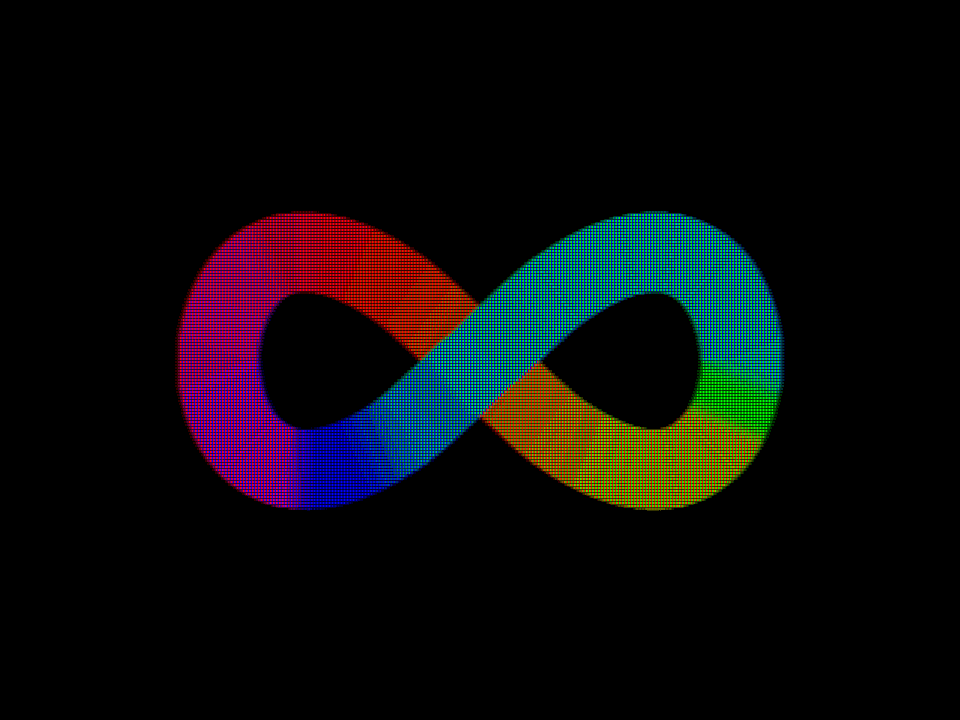Some FOSS programs, due to being mantained by hobbyists vs a massive megacorporation with millions in funding, don’t have as many features and aren’t as polished as their proprietary counterparts. However, there are some FOSS programs that simply have more functionality and QoL features compared to proprietary offerings.
What are some FOSS programs that are objectively better than their non-FOSS alternatives? Maybe we can discover useful new programs together :D
I’ll start, I think Joplin is a great note-taking app that works offline + can sync between desktop and mobile really well. Also, working with Markdown is really nice compared with rich text editors that only work with the specific program that supports it. Joplin even has a bunch of plugins to extend functionality!
Notion, Evernote, Google Keep, etc. either don’t have desktop apps, doesn’t work offline, does not support Markdown, or a combination of those three.
What are some other really nice FOSS programs?
edit: woah that’s a whole load of cool FOSS software I have to try out! So far my experiences have been great (ShareX in particular is AWESOME as a screenshot tool, it’s what snip and sketch wishes it could be and mostly replaces OBS for my use case and a whole lot more)
There is no better archive utility than 7-Zip IMO
Just wish there was a MacOS version
Keka is FOSS, supports 7z for both compression and decompression, and is native to macOS.
7-zip is foss??? damn, never knew that.
It is FOSS in old-fashioned way
rar has recovery records. i know it’s a somewhat niche feature, one far more popular in the ‘olden days’ especially in certain uh… ‘venues’… but it’s something i’ve always used when making backups with it.
you can make par2 parity data for 7z using the par2 util.
Tell me more.
Edit: I’m sorry I should have specified. I’m curious about the recovery records feature.
Files shared on Usenet (which may violate piracy laws) are usually packed in the rar format
I’m sorry I should have specified. I’m curious about the recovery records feature.
It essentially splits the archive into multiple rar sub-files (*.r00, *.r01, etc.) and then creates several more chunks that contain parity information (par2 files) that go with it. By doing so, if you then lose *.r45 but get *.r00-r99 you can recover the *.r45 file from the parity (par2) data. It’s pretty slick.
Neat, thank you!
I like using peazip since it’s open source and includes 7-zip along with it
I use 7zip on my Mac every day. Whatchu talking’ ‘bout, Willis?
I have not used it personally, but Blender is famously used in high value Hollywood productions.
I have experience with Blender and its counterparts, in a professional setting. Blender sure is powerful and solid on its own, for many things you can make the case that is better than Maya- it’s absolutely better value - however I wouldn’t say it’s better on all fronts. But yes it’s absolutely worthy of a mention here.
Houdini is also the simulation GOAT (i think its closed source), so while blender is really cool, it maybe doesnt fit this category.
it gained big notoriety recently because the Oscar winner Flow was completely made with Blender https://m.filmaffinity.com/en/film989516.html
This film gets cooler and cooler the more I hear about it! Really gotta watch it.
Cool movie
Home Assistant is - by far - a better home automation platform than anything else I’ve tried. Most of them cannot integrate with as many platforms and your ability to create automations is not as powerful.
Folks will argue that it’s harder. I argue back that if you buy a hub with it pre-installed, your setup experience is as easy or easier than HomeKit or Google Home or maybe Alexa.
It’s also a good example of how an open source project manages to outmaneuver big company offerings.
Home assistant just wants to make the stuff work. Whatever the stuff is, whoever makes it, do whatever it takes to make it work so long as there are users. Also to warn users when someone is difficult to support due to cloud lock in.
All the proprietary stuff wants to force people to pay subscription and pay for their product or products that licensed the right to play with the ecosystem. So they needlessly make stuff cloud based, because that’s the way to take away user control. They won’t work with the device you want because that vendor didn’t pay up to work with that.
Commercial solutions may have more resources to work with and that may be critical for some software, but they divert more of those resources toward self enrichment at the expense of the user.
I fully agree - home assistant is the way to go, even if it’s a little more complicated.
It’s much easier to add / remove / replace hubs as needed. A few years ago I switched my main hub from Alexa to HA. Then, a month or two ago, I decided to move away from Alexa due to the speech to text recognition noticeably degrading, they removed features (I forget what the feature was, it was a while ago), and recent policy changes. Super easy to disconnect and switch to a different assistant like Siri / HomeKit.
Alexa and Google home don’t have anywhere near the same capability for automations, they let you do simple things, but not reliably, and they also have more limited integrations, so less options when purchasing things.
Has anybody tried the HA voice hardware. Not sure how it works (does it use a cloud AI?)
deleted by creator
FFmpeg, OBS and VLC. I promise I use my computer for more than video.
ffmpeg is a GODSEND. saves me going to those “convert to file type” websites when I can do it locally and so much faster 😩🙏
Those websites are probably using ffmpeg on the backend anyway
Another one of those tools is image magic. Like ffmpeg but for images
ImageMagick
It’s even better when tied to an automation app. I’ve got FileFlows sitting in my media library, so any time I drop new stuff in, it automatically gets converted to my preferred on disk format.
I still get some ones I have to touch manually, but most of it gets taken care of without even thinking about it.
also FFShare on android as well. you share a video to it from another app, then it spits out a smaller sized file. so instead of trying to sent a 20mb video to someone its more like 3mb and sends a lot quicker (depending on the settings you use)
ffmpeg is where my mind went. It’s so good I don’t even know what the alternative is.
There probably actually isn’t an alternative. Whatever piece of software you might otherwise use to encode or convert video is probably using ffmpeg behind the scenes anyway.
For images (it can process images as well) imagemagick is used.
all are great :D
LibreOffice, OBS, and VLC are definitely the best out there. And Lichess (Online Chess platform) . Do you agree with me?
LibreOffice only really became better after Microsoft started pushing Office365 which made standard MS Office a lot worse. They were on par with each other until then.
The others 100% were always better.
You sound like you know your LibreOffice.
My experience is they are quite different but I’ve been able to do the same things for the most part.
But how the hell do I make a pivot table that looks and functions as nice as the plain old default one in Excel?
Excel is the one thing LibreOffice still falls behind on. It’s really hard to compete with Excel, specifically.
Excel is probably the one sore spot for LibreOffice, but also Google’s suite and really everyone else. Excel is tough to beat, especially when you consider the additional power of things like Power Query and Excel on web having JavaScript functions.
That said: I truly despise pivot tables and I no longer use them. I use lookups, countif, or other functions to display what I need, otherwise I use Power Query.
Whaaaaaaaat? Pivot tables are a 2 second job to summarise large amounts of transaction data or similar by month or year. Lookups or countifs would take so much longer!
Not to mention that you can drill into the data using them.
Ugh I hate excel. It can’t do the most basic things like search and replace things reliably in all cases. I have moved literally all data analysis besides the absolute basic “count” and “sum” operations to python in spyder. 200x faster, repeatable, won’t freeze up with large datssetd, and has never once failed a basic operation like a search and replace. Not to mention the localization issues and the fact that it will fuck things up completely if you install a new printer because Microsoft decided the printer has priority of your document and spreadsheet layouts over choosing a default.
I had some evaluation board software that whenever the value dipped below -1, would place the comma completely randomly in the floating point number.
Excel almost had a heart attack when I asked it to search and replace ”-1” with “-1,” and it found all of the cases just fine, but decides to ignore the replace and not place a comma at all. If I tried to convert them to a number, it freaked out and placed the decimal place also randomly, different than the input. And of course trying to do in-place operations on a column for export is just painful.
Hell, in notepad++ I could just regex the digit range that was preceded by a ”-1” and get everything replaced using a few brackets.
Not to mention how terrible the graphs work in comparison and how bad they look with the default options 😅. But hey, you can automatically put in a drop shadow or frame it in a useless way.
There are some people who can work very efficiently and do some crazy things in excel (like the excel doom) but unless you have literally been using it daily for many years and actively looking for ways to speed up, then it is just as easy or easier to do things in an actual data processing program like matlab, octave, python, or R (And I am not a coder) and you can literally copy paste a file name for the next full dataset.
OBS and VLC yeah.
You snuck the LibreOffice hot take in there and… yeah, no, unfortunately.
I don’t even think it’s necessarily better than MS Office, but I’d (unfortunately) take Google’s Office suite over both.
Only Office is a much younger project and is leaps ahead. It’s sad really, I used to champion LO since the OOo days. Doesn’t make sense these days anymore.
I feel the same. It’s my daily driver for about 6 months now in a professional setting with high demands. I have kept the Microsoft suite (and have not yet transitioned Powerpoint). When I go back to compare I can’t stand all the needy Microsoft interruptions getting in my way.
Sorry, freudian slip. Edited to avoid future confusion.
Nope, you were right and I was agreeing with you, and adding that a much younger project compared to LO is already ahead.
Oh, I’m changing it back, then.
FWIW, OnlyOffice IS much better (hey, at least it doesn’t open xls files with black text on black backgrounds on dark mode!), and I do think its Google-inspired “apps-as-tabs” thing is the future for this stuff. I’m not sure I’d rank it above those, but it’s certainly a much more… competitive, I guess? approach.
Also the fact that it’s self hostable and can also work offline and can also work as a desktop client for remote collaboration and supports several remote backends.
I feel PowerPoint is much more user friendly and functional than Impress
I really like OnlyOffice, pretty much a carbon copy of the MS Office UI and doesn’t screw up on MS-specific files (docx, pptx, etc.)
Also, I like that OnlyOffice, unlike MS Office, has all the things in one app vs having separate apps for documents, spreadsheets, slides, etc. You can just tab between your different documents!
I posted this in another thread yesterday but it’s relevant here too:
I have a small consultancy with several staff and work with documents and spreadsheets all day. We use LibreOffice exclusively.
Occasionally I encounter similar threads discussing the difference between LibreOffice and Microsoft Office, and the comments are all the same. So many people saying LibreOffice just “isn’t there yet”, or that it might be ok for casual use but not for power users.
But as someone who uses LibreOffice extensively with a broad feature set I’ve just never encountered something we couldn’t do. Sure we might work around some rough edges occasionally, but the feature set is clearly comparable.
My strongly held suspicion is that it’s a form of the dunning-kruger effect. People have a lot of experience using software-A so much so that they tend to overlook just how much skill and knowledge they have accumulated with that specific software. Then when they try software-B they misconstrue their lack of knowledge with that specific software as complexity.
That said, IDK if I’d go as far as to say LibreOffice is clearly the “best” because that’s subjective. IMO it’s certainly comparable and is a shining example of great FOSS. Hopefully LibreOffice enjoys some attention in the current move away from American products.
OBS is absolutely the best software in the field.
OBS is foss? huh, never knew that. I use it all the time for screen recording
Definitely lichess. It makes it very obvious how much of desperate cash cow chesscom is.
LibreOffice is also more compatible that Microsoft Word. It helped me and a friend to save his grandpa’s old writings that were stored in AppleWorks (.cwk) files.
i hoped someone would say VLC second only to 7zip.
Depends on your criteria. As long as your calculations are simple, it doesn’t matter which tool you use.
For slightly more demanding calculations, Calc just can’t handle it like Excel does. Then again, using spreadsheets for demanding calculations is just asking for trouble.
also, I’ve never heard of Lichess. I might have to check that out
I work with Microsoft Office on a daily basis for work, so professional use. I wanted to try LibreOffice privately, tried it and hat to notice that besides the terrible UI, there are many features missing and it’s just way clunkier. So I tried OnlyOffice, which had some features which I missed at LibreOffice, but now I’m missing other features…
So sadly, there isn’t a real competition for MS Office yet.
MPV blows VLC out of the water when it comes to playback. After using it at work to sift through collectively hundreds of thousands of hours of video, waiting for VLC to do anything feels painful
Linux is so much better than Windows.
… Unless of course you’re trying to connect two external monitors through a docking station with a USB-C into the laptop with a closed lid and disabled inbuilt screen.
Unfortunately, in my experience, Linux routinely fails at this task (tried many different distros) while Windows “just works”.
I have opposite experiences! Multiple Linux laptop, with multiple docking stations: a bit of xrandr magic and everything works, forever. (BTW, try setting manually the refresh rate at different values for the two monitors via xrandr, I have solves a similar problem to yours in the past by creating a dedicated display class.)
On a Mac, it’s impossible, I have to plug one cable directly in the computer to make it work, and the quality of the output on 2k monitor is way worse since they disabled sub-pixel rendering or some stuff.
Windows also works decently on this regard, until it doesn’t (my partner’s PC stopped recognizing HDMI monitor at some point, and the debugging was frustrating as hell).
Depends on the hardware I suppose. My Dell dock just works.
Never had that issue on my thinkpad, sorry to hear!
I’m having it on my Framework laptop - I really was hopeful that it would just work with that :(
Linux itself is not the problem here. Which DE is it? Does it use X.org or wayland? If you disable the login manager, do the screens work in TTY right after the boot? If you use X.org, Sometimes X.org drivers needs to be configured, Some OSes come with X.org configs like Arch. So in Arch you usually just have to install the packages you need. If you use Wayland, try X.org.
Did you try windows and Linux on the same machine? Hardware limitation can cause such issues. But if it works with Windows but not with Linux then it’s not that.
Windows may use worse quality output, e.g. different refresh rate, different color profile to fit into the hardware bottleneck. You can also experiment with these.
USB controller kernel driver could also interfere in theory, you can try different kernel versions.
Multiple GPU setups have also many options that you can play with.
I hope it helps.
If you disable… needs to be configured… just have to install the packages
And this is exactly the problem. I suppose there might be a way to fix it, but if Windows can just make it work for me, why can’t Linux do the same? All this “Oh you just need to do X and Y” should be unnecessary bullshit.
Also, it’s not that it doesn’t work at all on Linux, but it works sporadically. For instance, when the system goes to sleep and needs to wake up, the screens sometimes turn on, sometimes they don’t and I need to pull the plug and reconnect. This is never necessary on Windows.
Most of the time a popular distro just works, your special case did not. You should find the root cause, and report it. I’m sure windows is not bug free.
I’ve tried on Ubuntu, what’s more popular than that.
Windows is certainly not bug free and I’m very much a fan of the idea of FOSS - the execution is unfortunately lacking in this aspect.
People call Tiktok brainrot, but I feel like Windows has had the same effect on people.
Oh totally. I just wish Linux had better user experience than it does, cause right now it’s kind of subpar.
You mean the ease of setup, or the native handling of the world’s most popular applications?
Like the Internet?
Also dude, I just spent 8 hours trying every last weird hack that I could find on the internet, including editing the registry to try to get a Windows game to work on Windows 10. It would just crash on a fresh install of Windows. Steam on Linux worked flawlessly, riddle me that Batman, Linux was able to do better at Windows than Windows.
what game was it
Helldivers 2, which is otherwise excellent.
oh, I think maybe that is poor game design from the developers, I have heard many PC people experiences crashes/black screens etc, I suspect from poor utilization of system resources. it’s possible the developers managed memory poorly in a windows environemnt
And also better than MacOS!
I have said this since discovering it years ago: 7zip is superior to WinRar.
IMO WinRAR was only ever did one useful thing and that was breaking up files into arbitrary sizes for USENET theft
NanaZip is a modern fork of 7zip, useful if you’re on Windows 11
Just from top of my head and from what I have to use at work:
- Dolphin vs. Explorer - Dolphin is sooo much better and useful it’s not evwn funny
- Notepad++ vs. Notepad - day and night, even though Notepad got an overhaul in W11 it’s still piece of shit compared to Notepad++
- literally any foss player vs. what MS offers - be it VLC, SMPlayer, MPV, anything is better than windows built in crap
- ImageGlass, Nomacs, Gwenview, etc. vs. MS Photos - same as above, windows picture viewer is now worse than ever while open source alternatives get better and better
- and plenty others, like Linux vs. Windows, lol
Notepad++ really is just a better notepad. I will definitely look at Dolphin, it has a Windows version which I might need to try out. I currently use OneCommander. Yeah Windows Media Player isn’t very good. I use PotPlayer, but others like VLC, mpv, etc. all seem great too. Nomacs is awesome.
Yeah, Linux is probably superior to Windows considering the fact the latter literally spams you with ads and promotions to make a MS account and to buy Office 365. Insane that everyone just puts up with this. I currently use a Windows machine, only reason I’m not installing Linux is because a. it’s one of those 2-in-1 touchscreen foldables, which Linux doesn’t really like too much, and b. I’m not bothered to reinstall all my apps and change all the settings and preferences again. Next computer I get, it’ll be Linux (either Fedora or Mint probably, those two seem good)
If the 2-in-1 is holding you back, it worked for me with Linux Mint, touch and gyro rotation included. Touch works out of the box.
It did require me setting up iio-sensor-proxy with xrandr for the gyro sensor so it adjusts the screen when spinning the laptop around in tablet mode though. But the guide was pretty straight forward.
Just an FYI, that linux actually works with it well.
Nice to know that linux support the strange 360 degree laptops. I probably still won’t bother backing up all my data and reinstalling everything though. Will definitely try linux if I ever get a new computer, since I would have to install and set up a bunch of things if that happens anyways. I agree that I am a lazy boy but I also have exams coming up soon, so I need to prepare for that vs installing linux
- literally any foss player vs. what MS offers - be it VLC, SMPlayer, MPV, anything is better than windows built in crap
FFMPEG is an open source command line tool and software library for audio and video encoding. You’ll find it mentioned in the credits of just about any video playing software ever, but you can also just go use it for free.
I absolutely support dolphin over explorer. Whenever I have to deal with Windows, having to use this crappy excuse for a file tool feels like pain incarnated.
Imageglass is FOSS? oh heck yeah I love it even more!
deleted by creator
Wondering why you use notepad++ instead of Kate
Because I’ve been using it for over 20 years?
Fair enough. You were just listing some KDE default apps but not others, and my experience with Kate has been great so was just curious.
I like Kate, although it’s not far away from VSCodium, so might as well just use that for everything.
This is where I’m at. I may use a second note taking app, but I’ve always got vscodium up anyway, so may as well just make 1 more tab (probably in the 2nd window tho)
I’m using Kate now, but from my experience NPP has a lot more features built in for which I actually have to write some scripts to use with Kate. NPP has really strong encoding encoding and schema manipulation features and a robust plugin system.
If NPP had a native linux build, I’d go back to it in a heartbeat.
I have to live with Windows at work so that’s where I use Notpad++. I’m fine with Kate at home.
Why not use something like Nvim on both?
don’t you want copilot in your notepad?
I thought dolphin was for playing gamecube games?
I wish linux had more game/software support. I know there’s wine but still
Have you not tried gaming since proton matured into what it is today? If you’re using wine for gaming then you are doing it wrong.
Pretty much every Windows game that doesn’t have anti-cheat works on Linux now.
Proton doesn’t always work, and what’s worse is it’s not consistent.
What works on one person’s machine, may not work on a different one. But in windows, the game works fine on both.
I’m looking at you, Distant Worlds and Distant Worlds 2.
I’ve never gotten DW to work, and DW2 worked for a while, but hasn’t worked for me in over a year.
Yeah, I’m not sure why we’re being shit on for just wanting software to work properly out of the box
I’d prefer to wait until someone releases an OS with a hybrid Linux and ReactOS kernel
I think you’ll be waiting forever for that one. Not even sure why you would want that; I seriously doubt it would even work as a shortcut to reactos becoming a viable and mature OS.
I prefer an operating system that can run the back catalog of Windows NT software out of the box without having to adjust settings or type terminal commands to do so. I also want Linux and Windows programs running in a shared environment and to interact with each other better
With steamOS their investment in proton your wish has largely been granted. Native support would be better sure but ill take it
I can play 90% of my games without efforts. 5% are to old, the other 5% are EA Games, need uplay or whatever shitty launcher, have Anti-Cheat - stuff you usually wouldn’t want to have on your PC anyway
I wish more game/software had Linux support. I know there’s wine but still
There, FTFY
Blender for 3D modeling, sculpting, animation, rendering and (simple) video editing.
Several movies were either made (almost) entirely with Blender (Flow, Next Gen), or in parts (e.g., Captain America: The Winter Soldier, SpiderMan 2, The Midnight Sky).
It is also used by many (indie) game devs.
Speaking of games: Godot is an awesome 2D/3D game engine, which gained a lot more momentum after the Unity fuck-up. It’s licensed under the MIT license. Among a plethora of smaller indie games it has been used for financially successful and/or popular titles by indie and non-indie devs alike such as Brotato, Cassette Beasts, RPG in a Box, Endoparasitic, Dome Keeper, Sonic Colors: Ultimate, and several more.
Give it a try if you’re into game development!
I’m surprised I haven’t seen blender here yet, but I really think blender is one of open source’s greatest achievements. It feels like a professional software and is also used in the industry.
Actually, there’s lots of FOSS software which is at least just as good as proprietary. Most FOSS lacks the support of proprietary though. And I don’t mean the “call someone on the other end of the world” support, I mean manuals, tutorials and stuff like that. /Off topic
On topic: Apache, Git, Home Assistant and Jellyfin.
Unfortunately I think that Plex (proprietary) is still better than Jellyfin, especially regarding smart TVs apps :(
I just recently made the change from Plex to Jellyfin. Plex definitely has the better UX experience, but Jellyfin has better capabilities. The thing that finally got me to switch was Plex refused to play 4k HDR with subtitles, but Jellyfin handled it no problem.
I haven’t checked to see if someone’s mentioned it yet (it’s a long thread!) but I want to put in a word for a piece of software I’m always touting: Simon Tatham’s Puzzle Collection!
It’s a wonder! 40 different kinds of randomly-generated puzzles, all free, all open source, and available for practically every platform. You can play it on Windows, Mac (if you compile it), Linux, iOS, Android, Java and Javascript in a web browser. It should rightfully be high up on the iOS and Android stores, but it’s completely free, has no ads, doesn’t track you and has no one paying to promote it. No one has a financial incentive to show it to you, so they don’t. But you should know about it.
These comments are like a treasure trove.
I didn’t see anyone mention Kodi as an alternative to smart TVs. It’s better in every way than the Apple TV I won from a raffle at work. The best part is that my TV box is just a computer so I can use it to host other services too

Functionality, list of supported sites/services and simplicity
The only drawback for some users would be that it’s CLI-only, but there are GUI frontends like Open Video Downloader (a.k.a youtube-dl-gui)
yt-dlp is the goat
I love yt-dlp!!! Too bad that the Pluto TV downloader has been broken for a long time, I used it in the past to download region locked shows
The other day I set up a shell script on my phone that I can hook into with Tasker. I share a YouTube link to it and I can rip the audio to my music folder, or the video to my videos folder. Basically, I can turn YouTube videos into podcasts on the fly.
Syncthing!
I don’t even know what to compare it to, I have been using it so long.
peer to peer syncing!
that is exactly what Syncthing is, my desktop to my server to my laptop to my phone…
Hard disagree. I’ve had so many issues with Syncthing deleting files and refusing to connect over LAN that I’ve never had with Resilio Sync.
Weird, I have 100’s of thousands of files synced.
Been using it for years.
Linux, windows and Mac in the circuit. Never a problem that wasn’t user error.
Resilio hasn’t been issue-free for my use case, but it hasn’t been destructive in the same way that Syncthing has. I thought the Syncthing stuff was just me, but I’ve seen similar accounts from some people online.
Synchthing definitely needs some tweaking until it works the way you want it. I’ve been using it for the psst five years and I’m pretty happy with it today. I have several folders synched between two servers and a handful of devices, including my Android phone. It has completely replaced Dropbox for me.




























